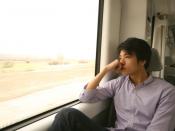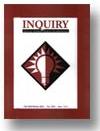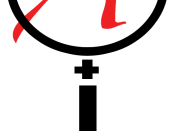The role of organizing in the critical thinking process, in essence, ties everything together. Without organization, there would be chaos, possible mayhem, and certain disorder. Organization takes all of the valid points and thoughts produced while critically thinking, and presents those thoughts in a pattern that surges effortless.
Organization is applied in many different ways, depending on who you are, what your precise "style" is, and what your brain is geared towards. Several philosophers have had numerous opinions as to the origin of our order. Plato claimed we encompass innate ideas, and Kant stated, "space and time are structures of the mind" (119). "Our brain is prepared to receive and store sensory data, to retrieve that data, and then to process and interpret that data in a higher, symbolical manner of language" (Goodpaster, Kirby, Levine, 120). It is without this ability, that we have greater chances at failing to succeed in furthering ourselves, professionally and keeping our personal lives in "order".
Generally, a lot of the information that we currently possess in our thoughts is from the natural order in society; what we are subconsciously taught. There are four types of natural/mental orders: topical, analogical, chronological, and casual. Topical order deals with the issue of most everything having its individual "natural" place; e.g. feathers fly freely in air. Analogical order relates to the likeness of the "big picture"; e.g. the similarity between computers and palm pilots and also the connection between the sky and birds. Chronological order "links" the change that occurs with time; e.g. you wake up, you shower, you get dressed, you leave for work. Casual order looks for the reasoning behind the chronological changes. The example that the Critical Thinking text used was a hurricane from eighty years ago. "When we find the reasons we call...


